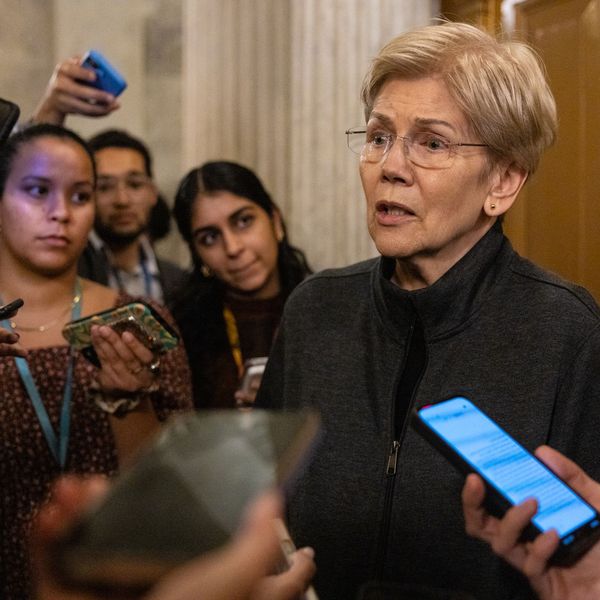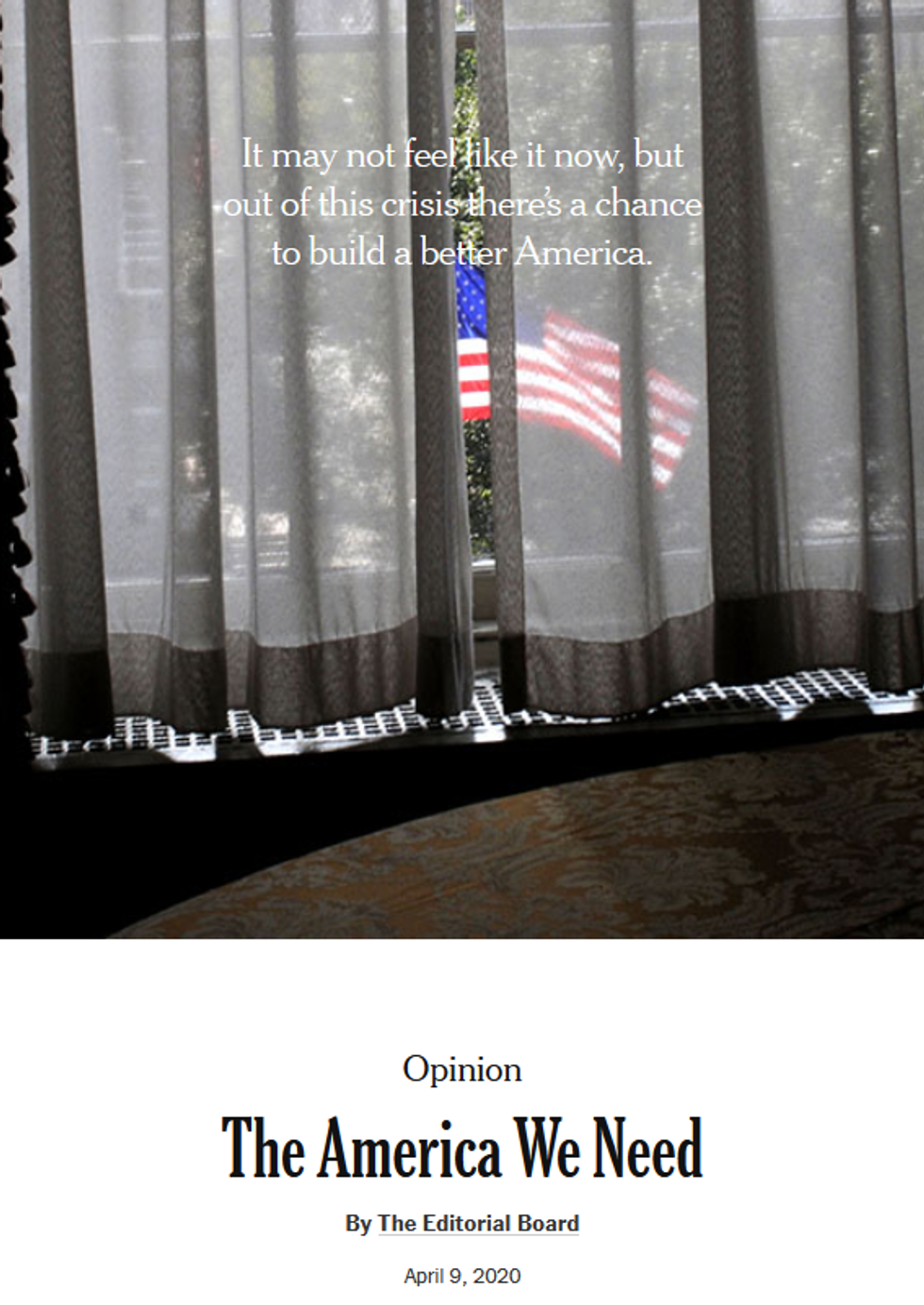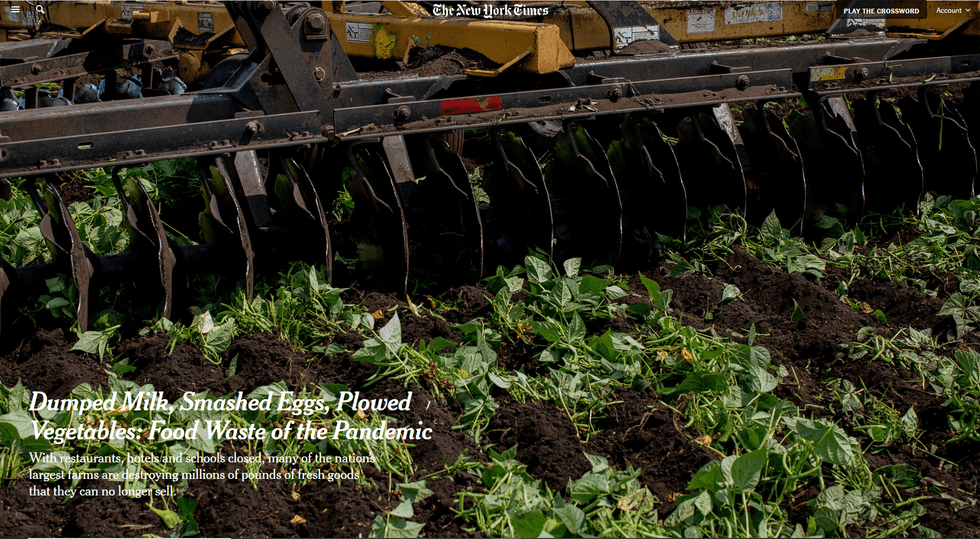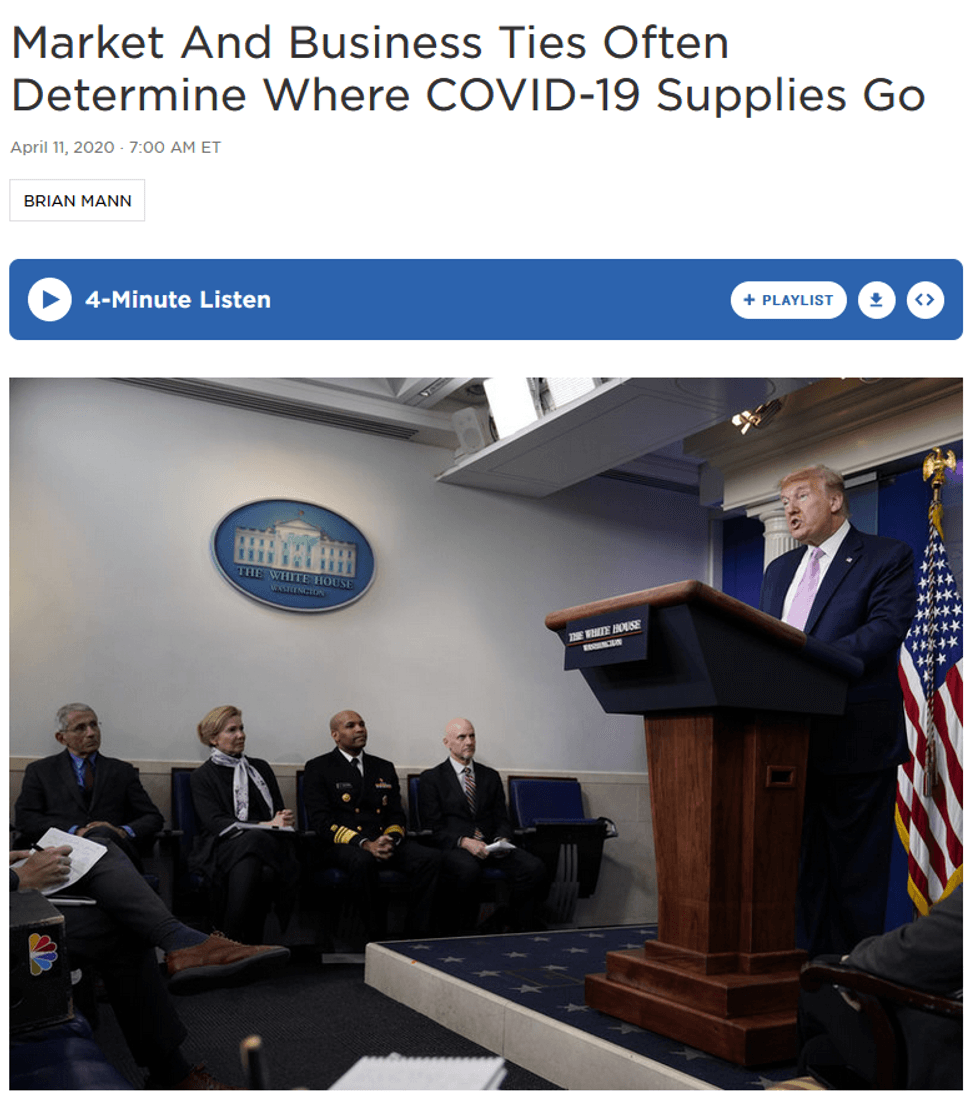Log in to any news site on any given day looking for economic news about the coronavirus, and you may feel steamrolled by the quantity of material to read, and the speed with which new, and occasionally contradictory, material keeps coming. March reporting in the New York Times covered aspects such as President Donald Trump's willingness to provide assistance to the shale oil industry, banks' requests for regulatory rollbacks, large corporations' demands for bailouts, and the unprecedented implications for the housing market, as well as the nearly daily updates from the Federal Reserve about increasingly novel strategies for providing liquidity to banks, corporations, small businesses and international institutions.

The editorial boards of both the New York Times (4/9/20) and the Financial Times (4/3/20) have published pieces invoking the spirit of FDR's response to the Great Depression and William Beveridge's Full Employment in a Free Society, and decrying the potential destruction of the social contract that would surely attend a failure to respond adequately to the challenges of the current pandemic. Even the Wall Street Journal's editorial board is arguing on behalf of bailouts for small businesses alongside big banks (4/9/20), and cheering monetary agreements in the Eurozone that will continue to sustain the EU for the time being (4/10/20).
This is a selective reading, of course. The Wall Street Journal's editorial board (4/12/20) also argues against New York's "blowout budget" as tens of thousands die from the coronavirus; the Financial Times fails to acknowledge its antagonism to Jeremy Corbyn's worker-oriented proposals last fall (11/15/19); and the New York Times still gives column space to Bret Stephens, who recently argued (4/10/20) that the real problem with the government's reaction to the pandemic is its not making way for business to respond quickly.
Yet the editorial boards of these publications (Wall Street Journal excluded) seem to be thinking in this moment about recovery-oriented policies in ways that are novel. The New York Times (4/9/20) hearkens back to FDR's "Four Freedoms" speech and his argument that Americans deserve economic freedom, and government ought to use its authority to promote it; the Financial Times is arguing both for greater issuance of Special Drawing Rights (SDRs) to emerging markets, to provide them necessary liquidity to respond to multiple facets of the crisis (4/12/20), as well as for social benefits that adequately compensate households and firms for the economic sacrifices that virus containment demands of them (4/3/20).
While we may allow for some progress in overall reporting on the social and economic needs in responding to an unprecedented medical, social and economic challenge, editorial boards and journalists for these and other publications should frame economic and public health problems in more structural and systemic terms going forward as they consider the scope of the pandemic.
Broadly, the coronavirus pandemic has illuminated the failures of capitalist and market systems to provide for social welfare. Farmers unable to sell produce they expected to sell to their normal customers absent a pandemic are destroying vegetables, breaking eggs and dumping milk (New York Times, 4/11/20); at the same time, passengers in thousands of cars wait hours to receive aid from foodbanks (Houston Chronicle, 4/10/20).
In pieces like Cara Buckley's "'Never Thought I Would Need It': Americans Put Pride Aside to Seek Aid" (New York Times, 3/31/20), individuals profiled uniformly express shame about their individual circumstances; only one subject of the article, an emigre from Romania, brings up Communism and welfare, and even then, it is only to note that he didn't expect to ask for assistance in the capitalist US. Buckley does not editorialize in this portrait of internalized embarrassment, but the collective economic injustice of this moment, worldwide, is apparent.
In the "Coronavirus Outbreak" section of the New York Times website, in addition to information about how to wear masks effectively, there is information in the "How Can I Help?" section about charities readers may contribute to, instructions for sewing masks and information about how to donate them. These acts of private aid, though likely worthwhile, are drops in the bucket given the scale of the healthcare and economic problems affecting the US and other countries right now. Public problems demand public solutions for the common good.
The particular features of this crisis highlight failures in other markets as well. Hospitals risk closure in a time of heightened need as they shift away from elective procedures that are profitable in order to minimize contagion risks and treat victims of Covid-19. At the same time, hospital workers and first responders are working long hours without adequate equipment, even as they are at risk of being furloughed while hospitals struggle to pay for everything (Boston Globe, 3/27/20).

The Trump administration's apparent favorite response tactic seems to be to eschew actual governmental authority to direct production and distribution of crucial supplies and equipment, and instead to cajole corporations to act in the common interest while spiting his critics. This administration's deference to firms has had perverse and likely deadly consequences: Private companies are directing PPE gear, reagents for tests and ventilators to hospitals and firms with which they have working relationships, rather than sending materials to the places with most dire medical conditions (NPR, 4/11/20).
And, in a moment where access to information is more imperative than ever, communities' access to news coverage is further shrinking as already strained newspapers, TV newsrooms and other media outlets have shuttered in the midst of economic chaos. The news industry was in dire straits before the onset of the pandemic; the Brookings Institute's FixGov blog (4/8/20), which aims to suggest improvements in governance, acknowledges the importance of local and alternative news coverage and praises a burgeoning trend in nonprofit journalism, but declines to critique the market structures that require ad revenue to fund reporting (a public good), or the problems with private equity firms acquiring and then destroying reporting outfits.
There seems to be concurrence that the social, political and economic legacy of the coronavirus pandemic will be immense; this calculus nags at governments trying to address how to move forward, when to lift social isolation requirements, and when to reopen economies to activity, let alone society to face-to-face interaction (New York Times, 4/13/20). It is clear that our present circumstances owe much to tensions and inequities that have developed and become entrenched in the decades preceding 2020; there will be challenges in responding to the new problems, as well as the structural problems that some have ignored. News media seem more open to recognizing these problems this time around; they can, and should, do more to publicize the capitalist and market-driven roots of these issues.






